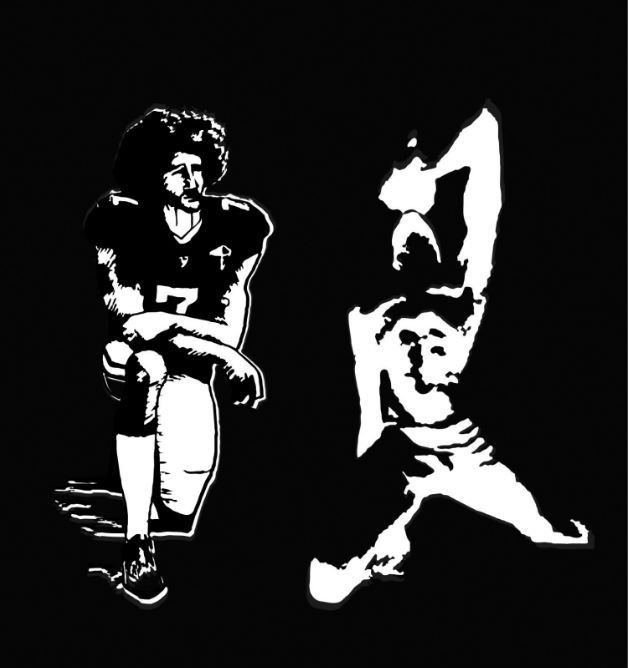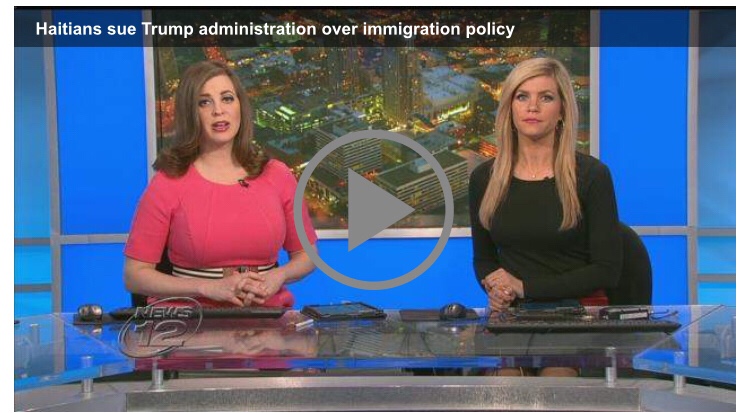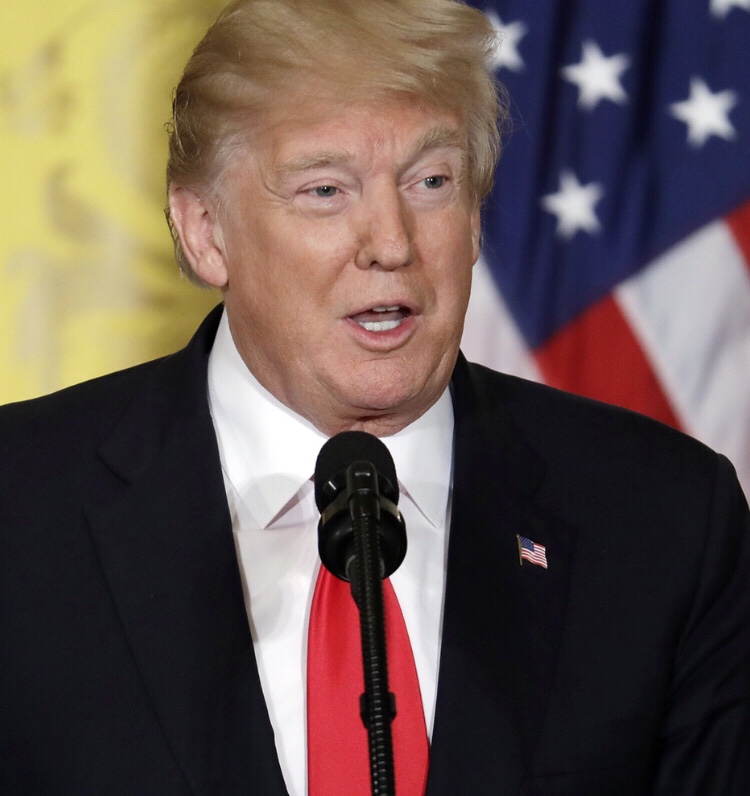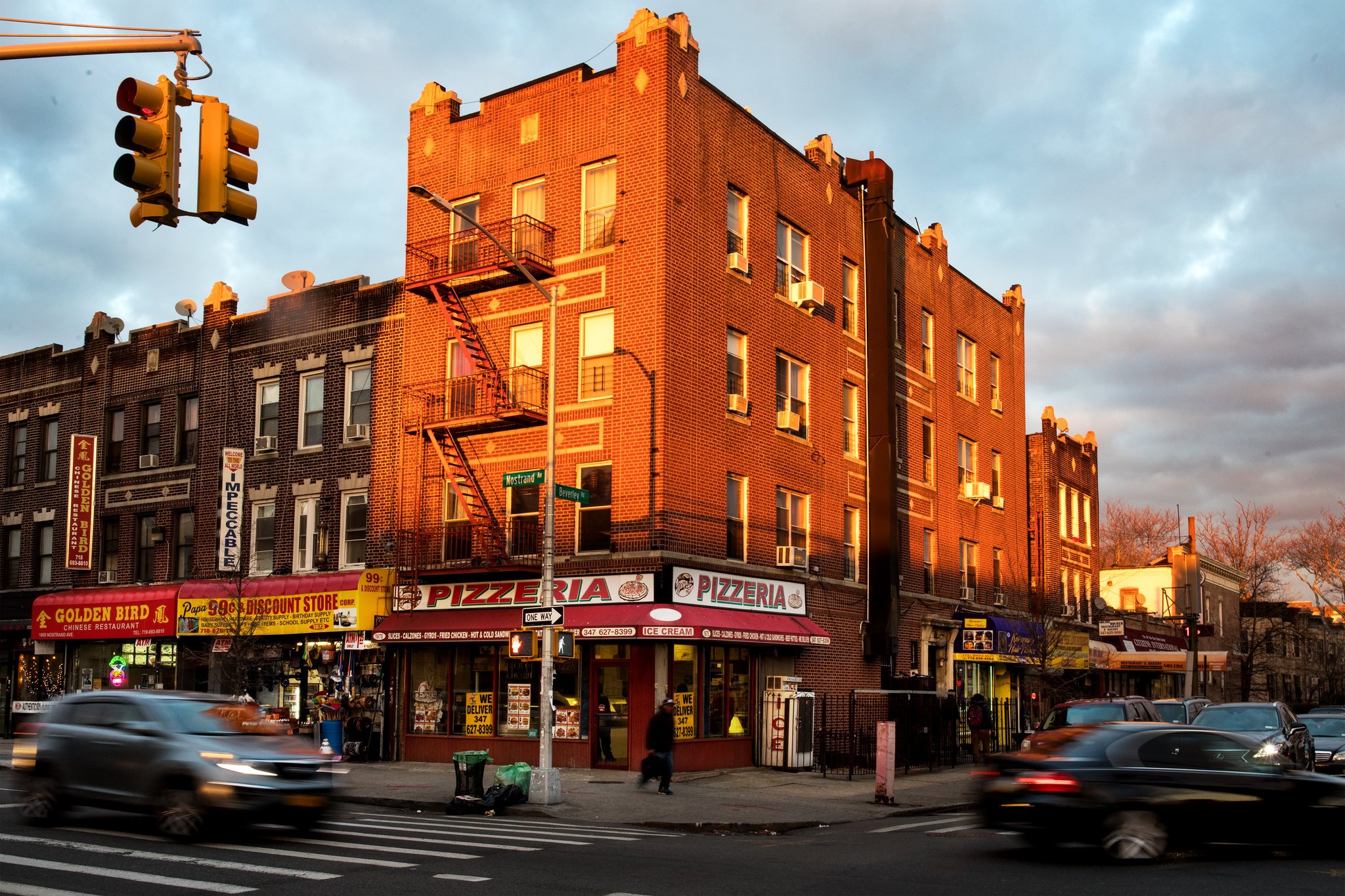The call for protest and rebellion against French slave owners, which subsequently ended French tyranny over Haitians, challenged the status quo and became the first iconic symbol of a successful black protest and revolution. Nonetheless, this great feat by Haitian slaves was not welcomed and accepted by most whites at the time, mainly the United States government and its president, Thomas Jefferson, an ambivalent slave owner himself.
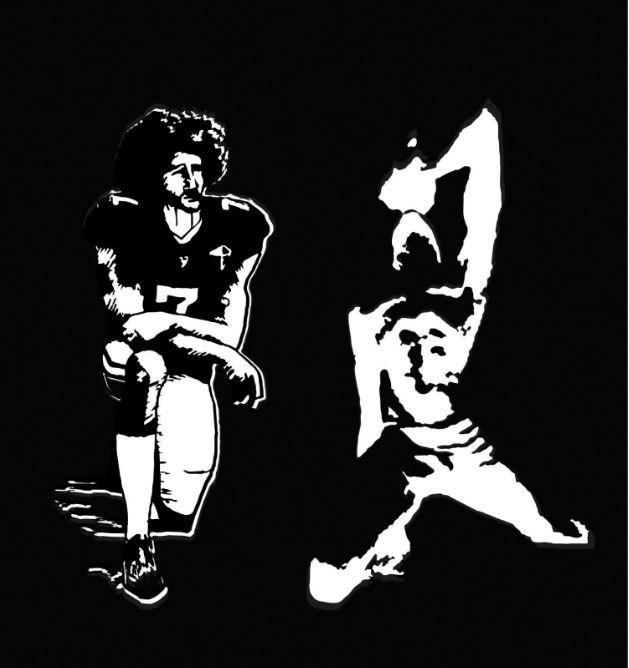
Jefferson realized the Haitian Revolution had the potential to cause an upheaval against slavery in the U.S. not only by the slaves themselves, but by white abolitionists as well. Southern slaveholders feared the revolt might spread from the island of Hispaniola to the slave plantations of the South, which it briefly did in 1831 with the rebellion by Nat Turner that was inspired by the Haitian Revolution. The primary goal of the U.S. was to maintain social order in the country, so the U.S. suppressed Haiti’s revolution.
The fear of oppressed people learning or talking about freedom is present today. Take for example the blackballing of Colin Kaepernick in the National Football League (NFL).There are suspicions that the NFL is blackballing Kaepernick out of fear of inciting the Black Lives Matter movement and the protest spreading to other players.
According to John Mora, owner of the New York Giants, “I think there are certain issues obviously that go along with Colin Kaepernick and that may have scared some teams’ [owners] away.”
Unfortunately, the lowest class of society in the U.S. and globally is still occupied by the disenfranchised and marginalized blacks. Though most black NFL players and other professional athletes are well off financially and generate yearly income exorbitantly more than most working citizens they represent an extremely small percentage of the overall population. According to Forbes, the wage gap between blacks and whites from 1979 to 2015 grew from 18 percent to 26 percent. The Economic Policy Institute contributes the growing earnings inequality primarily to discrimination of blacks in communities that most of the NFL players come from. In other words, the post-racial period we are supposedly living in has only gotten worse for blacks in terms of financial inequity.
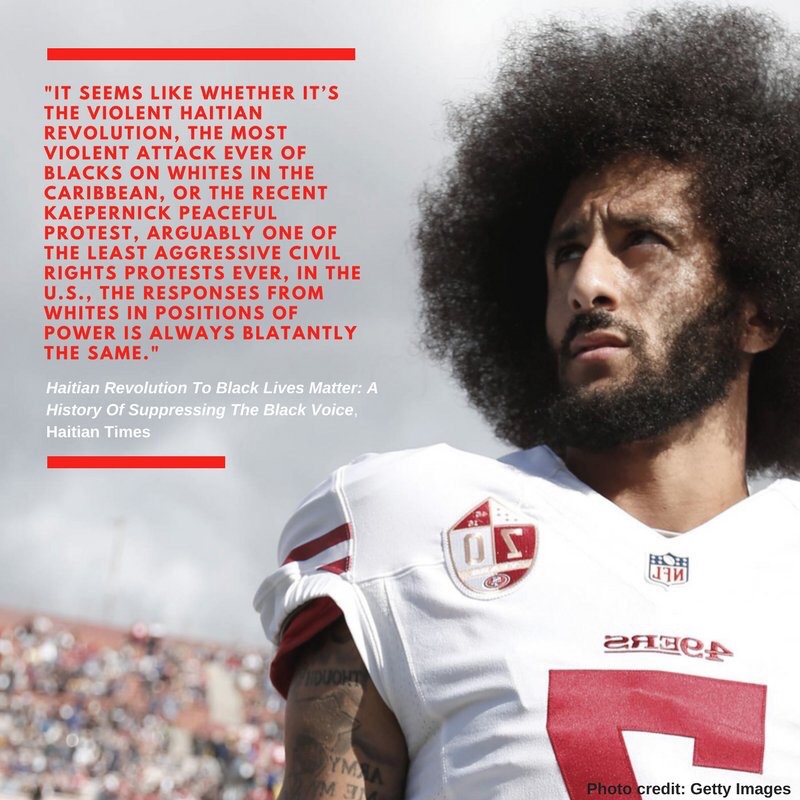
Adding to the racially disproportional margin that exists in income, is the staggering discrepancy in the incarceration rate between blacks and whites in the U.S. Many studies like the one published by The Sentencing Project in 2016 have argued that this discrepancy exists because of racial profiling by police and implicit racial bias in court against blacks and Latinos.
Yet, when Kaepernick uses his platform and prominence to peacefully voice concerns and highlight the discrimination that the black community is facing, he gets ostracized by the rich NFL owners because supposedly his protest will affect their teams’ financial bottom line. The argument and pretext of the NFL owners, like the one by New York Giants’ John Mara, is that Kaepernick’s nationalanthem protest might lead to a white fan backlash resulting in a decrease in viewership and merchandise purchase.
Although there might be some validity to his argument, most black people are suspicious of the motive, partly due to the slavery association they make between the NFL and the black players, but mainly because they believe there is a clear historical pattern of crackdown of black protests that dates back to slavery in the 18th and 19th centuries to the current BLM movement.
It is probably unfair to compare slaves with NFL players, owever, lately there have been a lot of parallels between slavery and the relationships between the players and NFL owners.
The comparison has been made in different sectors in our society, whether explicitly mentioned in the book Forty Million Dollar Slaves, uttered by some NFL players during interviews, or implicitly expressed in the popular movie Get Out, a fictional story of black bodies being used for either personal or financial gain.
Ironically, the subtle correlation between the NFL and slavery was recently displayed by ESPN, NFL’s most popular media outlet, during a skit for a Fantasy Football auction that showed a white man standing on a podium holding a picture pretending to auction New York Giants wide receiver, Odell Beckham Jr. to a mainly white audience.
This unintentional tone-deaf skit was not well received by Beckham and many other black athletes. The incident sparked more discussions about the racial dynamic between the NFL and the majority of its black players.
It seems like whether it’s the violent Haitian revolution, the most violent attack ever of blacks on whites in the Caribbean, or the recent Kaepernick peaceful protest, arguably one of the least aggressive civil rights protests ever, in the U.S., the responses from whites in positions of power is always blatantly the same.
By: Francois Thermitus | September 27, 2017




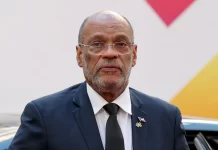
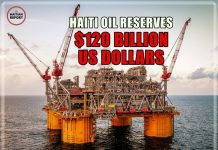
























![Phyllisia Ross – KONSA [Official Music Video]](https://haitiville.com/wp-content/uploads/2014/08/phyliisia.jpg)
